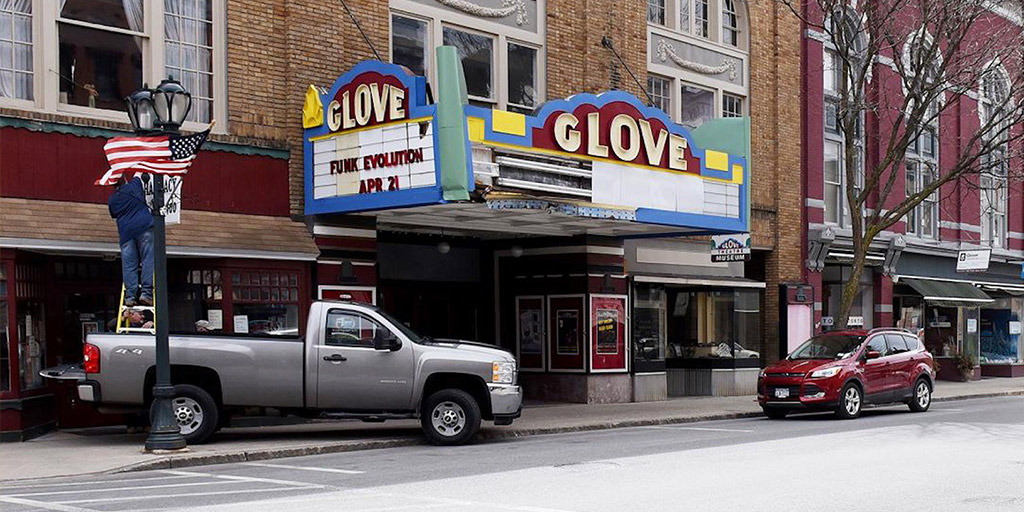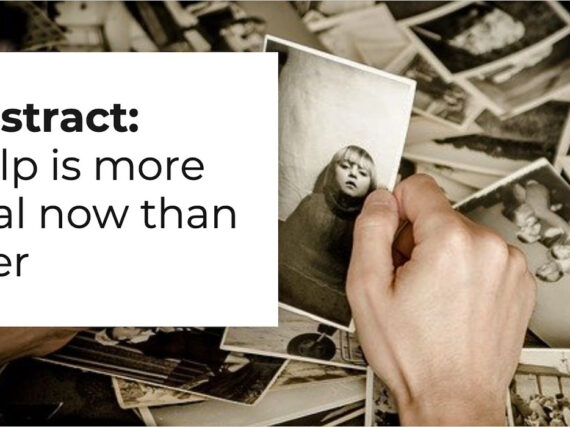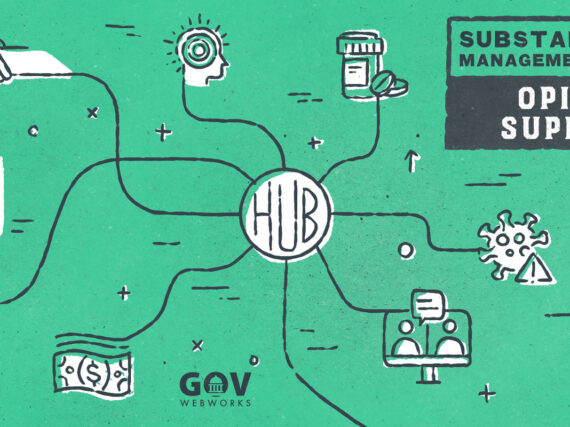“Losing your work makes you angry,” writes Pulitzer Prize-winning author Richard Russo in an essay from the anthology, Tales of Two Americas. “If you don’t know who you are or how you fit in, maybe you’re nobody. Maybe you don’t matter.”
We recently attended a discussion with Russo at Print: A Bookstore that provides perspective around the efficacy of welfare-to-work programs and work requirements for state and federal benefits, and the American Public Human Services Association (APSHA) goal of fostering economic self reliance, especially in small towns and rural areas.
Moderated by editor John Freeman, Russo and writer Kerri Arsenault detailed the ways in which the changing economies of their small hometowns impacted their families, and ultimately the American economy as a whole. They described the toll of losing or not finding work as especially painful in towns where options are limited.
Insights from discussions such as these provide fodder for agencies working to foster economic self reliance. They also illuminate the issues small town residents face when trying to meet work requirements to qualify for SNAP and Medicaid. Often, the education and training provided by mandatory mixed-initial-activity programs is needed for requirements to succeed.
Small town blues
“As they look to the future, a lot of transitioning communities are really looking for their past glory,” said Russo. Especially in towns where manufacturing was at the center of the economy. “But you are not going to find what you lost. The first step in change is to stop confusing the future with the past.”
Described as “the patron saint of small-town fiction” by the Washington Post, Russo’s writing is similar to that of Faulkner or Steinbeck in that he gives voice to working-class protagonists who struggle to find their place in a country that both glorifies and dismisses them. Russo’s fiction speaks for people from small towns who feel disenfranchised when the work that defines them is taken away.
During the discussion, the writer said his perspective was formed by the decline of the glove industry in his hometown of Gloversville, as detailed in his memoir, Elsewhere. While growing up there in the 1950s, Russo’s grandfather worked as a glove cutter, but leather dress gloves were going out of vogue and would be replaced by cheaper overseas manufacturing.
Like other towns in the Rust Belt, Gloversville experienced economic decline and population loss as a result of encroaching industrialization and globalization. Similar to the steel, coal, paper, and auto industries, as cheaper labor became available overseas, local manufacturers were no longer in demand and the communities around them suffered.
Towns that were able to shift toward tourism, service, and high-tech industries did so, but many communities stagnated. As a result, they lost the ability to create work, and as Russo says above, that made them feel not only destitute, but angry.
Transition to the future
The loss of manufacturing jobs that defined the second half of the 20th century is in part why the slogan “Make America Great Again” won the White House in 2016, Russo suggested. However, he also expressed his frustrations with that slogan. “There’s no way to bring back the past the way it was,” he said. “It’s gone. The only way forward is to look to what’s next in the future.”
For manufacturing towns to evolve, he suggested a new approach. “Why not try a hundred small things instead of the one big thing that defined the past” Diversify. Then you have a chance for change. A few small things starting to happen can add up to something big.”
Russo provided the example of the Gloversville Public Library. The Beaux Arts structure, built in 1904 with funds from Andrew Carnegie, was in need of a major $7 million renovation, but Gloversville was no longer home to the tycoons of industry to front the money as in the past.
Then the mayor and the library’s executive director came up with a plan. What if the library renovation was billed as part of a renaissance of the Gloversville downtown and community itself? What if they called on many small donors instead of one big one?
“When people see the library is changing, it looking and feeling totally different, it will increase people’s confidence that this is not a bad place,” Mayor Dayton King said in a New York Times article on the topic.
With the goal of working together to help the library as a way of helping the town, the library renovation committee reached out to a variety of separate funding sources. Slowly but surely, the campaign received donations from citizens, businesses, and foundations, as well as government grants. In the past three years, approximately $8,900,000 of the $9 million goal has been raised, and the campaign is expected to close successfully.
Local perspectives
“It’s important to tell the truth about the issues being faced across the country,” said moderator John Freeman during the discussion. “And it’s easier for people to tell the truth about what they experience at the local level.”
On that note, writer Kerri Arsenault spoke about about her experience growing up in the paper mill town of Mexico, Maine, and ways in which the mill’s fortunes and misfortunes defined her family. In an essay in Freeman’s literary journal, her experience touches on the larger story of how paper towns like hers were unwittingly poisoning themselves.
“It smells like farts,” kids said of the town, but the laughter covered a much more serious health issue, detailed in an article in the LA Times. They called the area “Cancer Valley” in a jokey way as well, Arsenault says, because what else could they do?
“Dioxin, cadmium, benzene, lead, naphthalene, nitrous oxide, sulfur dioxide, arsenic…these are some of the byproducts of modern-day paper making,” Arsenault writes. “Non-Hodgkin’s lymphoma, lung cancer, prostrate cancer, aplastic anemia…these are some of the illnesses appearing in Rumford and Mexico.”
Two years after the Rumford Mill discharged 1.2 million pounds of toxic chemicals into the local environment, “five people in Rumford and Mexico are diagnosed with non-Hodgkin’s lymphoma, a rare form of blood cancer associated with exposure to dioxin.”
The problem was, no one wanted to talk about it. If the mill were to close everyone would lose their jobs and things would be much worse. Sadly, the cost of silence included the lives of loved ones.
Truth and consequences
Arsenault details the harrowing death of her father in 2014 from esophagael cancer caused by exposure to asbestos. Having worked at the mill for 43 years, her father received compensation from the asbestos companies for scarring his lungs. However, he refused to talk about his illness or its connection to his work.
When her story was published last year, Arsenault said she received hundreds of letters from people in the community, and in the comments section, thanking her for telling a truth that no one could talk about. Not only were people moving away from the area because of the declining paper industry, they were dying in the effort to preserve it.
Today, the Rumford Mill continues to operate, employing about 640 people. Though Rumford and Mexico have escaped the fate of Russo’s Gloversville, other Maine paper towns have lost their mills and seen similar decay.
Arsenault’s story poses a difficult choice: Keep the mill and the jobs, but also the resulting health issues? Or lose the mill and the jobs and start over?
There are no easy answers here, but the writers agreed that talking honestly about the issues in local communities can make all the difference.
“Some people and communities are stuck in time,” Freeman noted. “The rest of the world is moving at a digital pace now. A conversation needs to happen between the two. One side is not better or worse, but equally valid.”
“At the national level, there may be a lot of division, but at the local level, people can agree on a lot,” said Russo.
How to make a difference
Equally valuable are the takeaways from discussions like this one at Print: A Bookstore. As Russo said, when it comes to building, or rebuilding, economic self reliance, it’s important for communities to try new things, to diversify, and call on community pride. In the case of the Gloversville Library renovation, the many hands of the community were needed to replace the handouts of the manufacturing industry.
As well, the digital world is now at the fingertips of most remote small town residents. Places like Rumford and Mexico don’t need be isolated and insular company towns. The tourism and service industries and telecommuting are viable options for renewal. Small towns can also look to state and federal online resources that help them follow successful models for change.
While loss of work and the identity it provides can be devastating, sometimes one door has to close before another opens. Such was the case for Patrick Daubenberger of Madison, Maine’s paper mill. After losing his job when the mill closed, Daubenberger was able to go to college and find new work options, as reported in the Press Herald. Welfare-to-work programs can also provide the encouragement and support to try something new.
However, it’s important to remember, as detailed in our post, How Software Supports Welfare-to-Work Outcomes, that support is needed for successful outcomes. We applaud the efforts of the states and agencies that are developing tools, such as Idaho’s Employment and Training System, to facilitate this effort. And we celebrate the courage of those who tell difficult stories to bring about change.
Learn more
- APHSA Blog: Unlocking the Power of Human Services to Build Strong Families and Communities – by Tracy Wareing Evans and Susan Dreyfus
- Freeman’s: The Future of New Writing – anthology by editor John Freeman
- Let us know if GovWebworks can help with support tools







